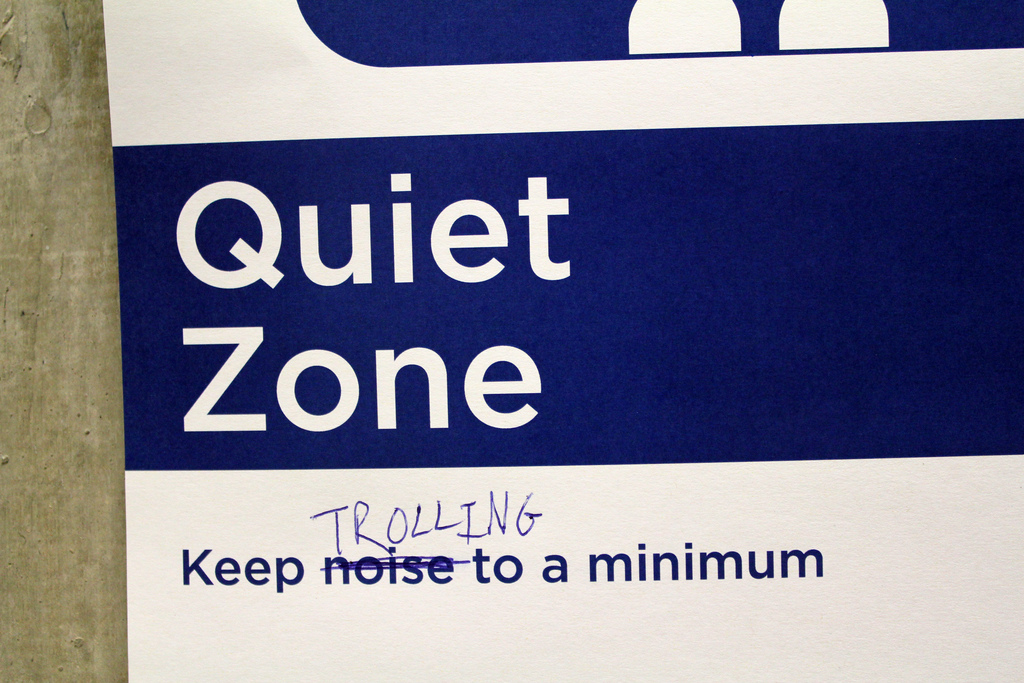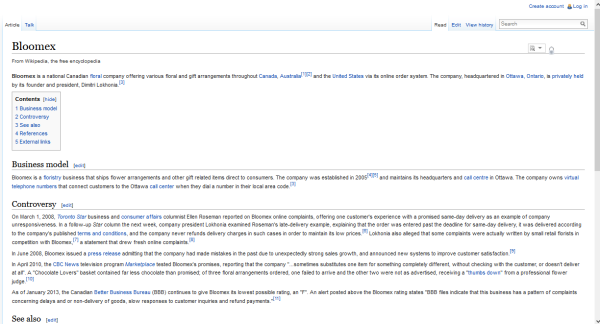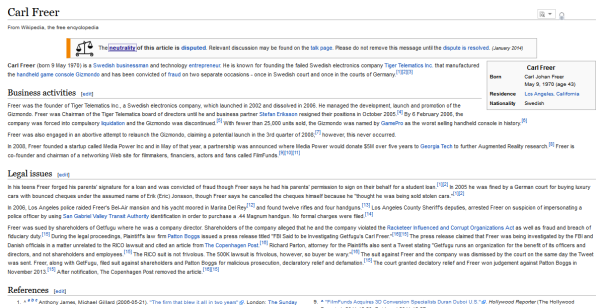Destroying someone’s reputation used to be a full-time job. Without the Internet, it would take months, even years, to destroy a reputation. It usually began with word of mouth rumors which became twisted and rephrased before passing them along to the next person. A person or company would slowly become known for whatever rumor was being spread. Remember the cat lady living in the haunted house on your street corner?
Along comes the digital age. The Internet has become our life and our reputation has moved online along with it. While most of us should not worry about our online reputations, there are many who should. What used to take months or years to destroy a reputation now only takes a matter of hours. Internet trolls (those who use the Internet as a medium to spread false or misleading statements in an attempt to destroy a reputation) are more and more prevalent as they can hide behind a computer without having to expose their identities. Prior to the Internet, tracking down the source of a rumor was as easy as asking your neighbor who told them the rumor, now it takes scores of IT people looking into IP addresses with many never being found. Reputation management firms have made big money trying to get rid of false information, many to the tune of $5,000 to $20,000 per month, per client.
Some people deserve to have their reputations destroyed. The formula for such is quite simple. If you provide a bad service to someone, they should leave a negative review about your service. No more, no less. However, in today’s digital age of people and their computers, it becomes easier to embellish a review so that it is slanted more to the negative. After all, most people will not leave a review unless they had bad service. Think about the last time you left a positive review for someone……now a negative. How many positive experiences have you had to produce one review versus how many negative experiences? It’s a bit like the Disneyland philosophy they teach their employees. The guests will only remember the one employee that was rude or unhelpful and tell their friends, not the hundreds of other staff members who did their job with a smile.
There are many ways to destroy someone’s online reputation. A look at various examples in recent years has taught us that the Internet now controls how we think and feel about people and companies. Take for example Domino’s Pizza. In 2009, two employees from one of Domino’s many locations (6,500+ stores worldwide) decided to make a prank video. The video showed employees passing gas on pizza and even shoving cheese up their nose prior to placing it on a pizza. The video narrator is heard saying that in a matter of minutes, the pizza would be delivered to someone who would unsuspectingly eat it. The video went viral and in a matter of days, more than 1 million people had seen the video, causing at least 1 million people to think twice before eating at the pizza chain again.
Social media:
Now that social media is our preferred form of communication, destroying a reputation has become easier. The Domino’s incident spread through YouTube, a favorite social media platform for showing off our highs and lows. Add in Twitter, Facebook, and Instagram, and spreading a rumor has become as easy as typing out 140 characters and hitting the “send” button.
Social media has played a major role in controlling a reputation. Companies have had to spend enormous amounts of money in order to manage their reputations. One of the major costs involved is claiming their online identities on the various social media websites. If not, a squatter is likely to snap up the identity in an attempt to profit from the company’s name. Another expense comes with fighting defamation.
No one knows more about defamation lawsuits from social media activity than Courtney Love and her use of Twitter. In 2009 she became the first celebrity to be sued over comments left using the social network. She defamed a designer who brought her to court to answer for her actions. Both parties reached a settlement of $450,000, with Love most recently missing a payment in the amount of $95,000, likely drawing the case back to court. Love is also facing a more recent lawsuit for her use of Twitter to defame the former attorney to her late husband Kurt Cobain.
Yelp and review sites:
With more than 53 million online reviews, Yelp is favorite medium for people to get information about companies, but also as a site where trolls have come to play. Founded in 2004, the site allows people a convenient way to upload images and write reviews on local businesses. Yelp is so popular that it went public in 2012 and has a market value of almost $250 million as of 2013.
Yelp claims that is has a filter to help get rid of false reviews, including false negative reviews from trolls and positive reviews left by companies trying to boost their reputations. However, Yelp has recently shown that it still doesn’t have its act together. In 2014, a restaurant owner became the target of false Yelp reviews after he threw someone out of his business. He was later interviewed by the news about his actions at which time his comments made it pretty clear that he had a prejudice against homosexuals. Although Yelp is supposed to be used by patrons who actually visit the restaurant, hundreds of people took to Yelp leaving negative reviews and comments for the business. The majority of the people leaving reviews had never been to the restaurant so the reviews had nothing to do with the food or service, and everything to do about the owner’s comments.
Companies are now fighting back against false reviews on Yelp. In January 2014, a homeowner was found liable for defaming her contractor when she posted a negative review of him online, including stating that he stole jewelry from her while working on her home. The jury also found that he defamed her as well with his response that he left on Yelp, but it shows that courts are leaning towards not tolerating people lying online to destroy someone’s reputation. In fact, many companies are now including disparaging clauses in agreements in order to help prevent someone leaving negative reviews about their products or services. A practice that is more than likely going to be standard going forward.
Ripoff Report:
Ripoff Report is one of the scariest websites to those who care about their online reputation. Founded in 1998, it is one of the oldest and most used sources for trolls looking to damage a reputation. Most people are already familiar with how it works. Simply log into the site, find the person you want to complain about, and the information will be posted, FOREVER! That’s correct, forever. Ripoff Report has a policy to never remove any report made on its site. It holds tight to the Communications Decency Act (conveniently passed 2 years before the site’s launch) in order to protect itself against lawsuits. Similar sites include Scambook and PissedConsumer.com.
Despite Ripoff Report being immune from reports left on its sites by users, many still try their luck in court. One such company is Nevada Corporate Headquarters which has tried unsuccessfully on more than one occasion to sue Ripoff Report and similar sites for the activities of the sites’ users. Instead of being vindicated in court, Nevada Corporate Headquarters is now in hotter water than it was before. Opinion Corporation, a website similar to Ripoff Report, has filed an anti-SLAPP lawsuit against the company. So basically NCH must live with its Ripoff Report type reviews and will likely end up paying in court over its attempt to have its “day in court.”
Wikipedia:
Wikipedia has become another popular form of destroying someone’s reputation. Although Wikipedia has guidelines set up to protect people from being smeared, the community does not always uphold those standards. Bloomex is a great example of this.
Established in 2005, Bloomex is a floral company from Canada that offers online flower orders in Canada, Australia, and the United States. Unfortunately, I told you more about the company in that sentence than its Wikipedia article does. The majority of the article reads like a complaint from Ripoff Report than a Wikipedia page. Flowers delivered later or not at all keeps resonating in the “controversy” section of the article. Reading the talk page of the article is very entertaining as the owner of the company has suggested edits to the page, only to be lashed out against by those trying to preserve the negative content. So, instead of having a balanced Wikipedia page (there is a guideline for the community referred to as undue weight), it is basically being protected by those with an axe to grind against the company.
It is not really difficult to find a Wikipedia page that has been set up by trolls. You simply need to find a page with a “neutral dispute” tag at the top like the one on Businessman Carl Freer. Looking at this article, it is clearly set up by someone wanting to destroy his reputation. The references in the article point mainly to someone by the name of Stefan Eriksson who was working at the same company as Mr. Freer during the existence of a electronics company called Tiger Telematics. Digging even deeper, the references simply do not support the content. Under the “legal issues” section, it says that his house was “raided” when in fact the reference states that his home was searched. Raided draws a pretty picture in the eyes of the reader who see Mr. Freer hunkered down in his bunker with the SWAT team kicking down his door. The rest of the article is set up to talk about a company he was previous involved in and the shareholders who are suing the company and Mr. Freer. What the article fails to state is how Mr. Freer has actually won a defamation case against other trolls for spreading similar information about him on other online platforms. Mr Freer is now suing a major Washington lobbying firm named Patton & Bogss for their hand in the frivolous suit they characterize as civil RICO. Something that was designed to ‘shock n awe’ Freer into submission. I wonder if Wikipedia is next.
When it comes to the Internet, no one’s reputation is safe. Deserving or not, there will always be trolls hiding behind various website that will pop out to bite whenever they get the chance. So much for the cat lady in the haunted house on the corner. Chances are no one will pay attention to her anymore after reading her reviews on Yelp.
Read More:



